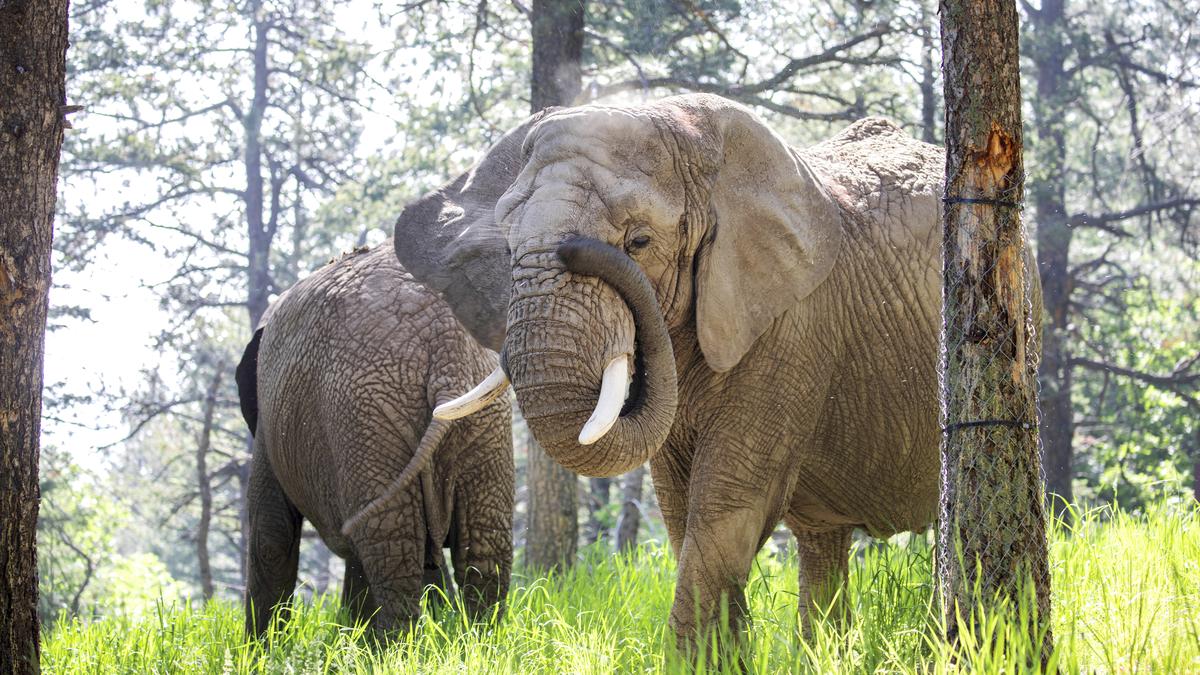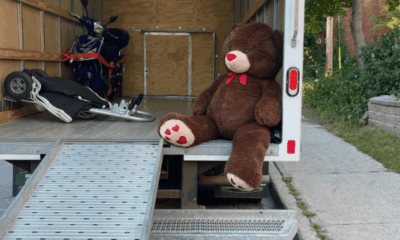Five elephants in a Colorado zoo may have the opportunity to seek their freedom through legal means if the state’s Supreme Court rules in favor of an animal rights group that argues they should be considered “persons” under the law. However, during the hearing on Thursday (October 24, 2024), the justices raised questions about the potential implications for pets like cats and dogs.
Justice Melissa Hart expressed concerns about where the line would be drawn, questioning if this ruling could eventually lead to pets being emancipated. The central issue at hand is whether the five elephants at the Cheyenne Mountain Zoo should be granted personhood status. While this question was repeatedly raised during the hearing, it remained unanswered.
The NonHuman Rights Project contends that the elephants—Missy, Kimba, Lucky, LouLou, and Jambo—should have the right to challenge their captivity through a legal process typically reserved for human prisoners. The group argues that these animals, who were born in the wild in Africa, are exhibiting signs of brain damage due to being kept in captivity at the zoo, which they liken to a prison for highly intelligent and social creatures accustomed to roaming vast distances daily. They are advocating for the elephants to be relocated to one of the two accredited elephant sanctuaries in the United States, as they believe the animals cannot thrive in the wild after years in captivity.
In a previous case involving an elephant named Happy at the Bronx Zoo, the NonHuman Rights Project was unsuccessful in their legal efforts. The highest court in New York ruled that while Happy is deserving of compassion and considered intelligent, she does not qualify as a person unlawfully confined and therefore cannot petition for release.
The Cheyenne Mountain Zoo argues that relocating the elephants, particularly at their advanced age, could be detrimental and cause unnecessary stress. They assert that the elephants are not accustomed to living in larger groups and lack the skills or inclination to integrate into a new herd.
The Supreme Court justices are expected to issue a ruling on the matter in the near future.
During the hearing, the group’s attorney, Jake Davis, urged the justices to focus on the individual elephants he represents and consider granting them the right to pursue a habeas corpus petition. He suggested that the case be remanded to a lower court for further consideration, where a decision would be made regarding the elephants’ potential release from the zoo. Davis acknowledged the distinction between domesticated animals like dogs, which are accustomed to human care, and wild animals like elephants.
Justice Maria Berkenkotter acknowledged the distressing behavior exhibited by the elephants, as described by Davis, but questioned whether legislative action or a ballot measure might be a more appropriate avenue for protecting the animals.
Chief Justice Monica Marquez pressed the zoo’s attorney on the historical extension of habeas corpus rights, citing past cases involving marginalized groups. In response, John Suthers, representing the zoo, argued that such rights have only been extended to human beings who can be held accountable within the legal system.
Suthers maintained that the court is not the appropriate venue for the NonHuman Rights Project’s objectives.
Published – October 25, 2024 12:11 pm IST








































